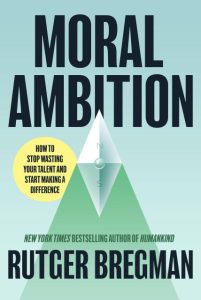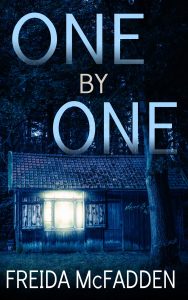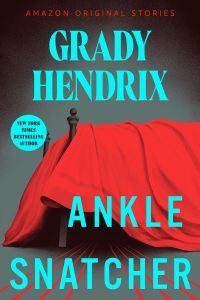
Mai Corland returns to her bloodsoaked playground with Four Ruined Realms, the propulsive sequel to Five Broken Blades. The stakes are bigger, the double crosses are sharper, and the blades are somehow both more fractured and more entangled. If book one was a recruitment and betrayal story, book two is a caper built on shifting loyalties where everyone is playing everyone, including themselves.
Setup: one ring, five liars, zero trust
The premise is deliciously simple. King Joon wants the Golden Ring of the Dragon Lord in Quilimar’s possession, and he intends to use the five blades to steal it. The team has a month, a foreign legal code in their way, and a past that refuses to stay buried. Each blade has a private agenda, and each knows that letting Joon win would be worse than death. It is a heist wrapped in a vendetta, with a crown at the center and a ledger of sins as long as the sea crossing to Khitan.
Corland keeps the mission readable and brisk. The plot jumps between arenas, prisons, palaces, alleyways, and back rooms where power is traded in whispers. Even when the crew is split, you feel the pressure of the countdown. The book thrives on tension born from proximity without trust.
What works: pace, payoffs, and messy queers with knives
When Four Ruined Realms leans into intrigue and momentum, it flies. The set pieces have clean objectives and ticking clocks. The blades are best when they are lying to enemies and friends with equal conviction, then paying for those lies in blood and consequences. Corland understands the pleasure of competent characters forced into impossible bargains, and she rewards readers with reveals that feel earned.
Character wise, this is a story powered by contradictions. Aeri is a walking chaos engine who dresses for the city she wants to conquer and manages to be vulnerable and unhinged in the same paragraph. Euyn is the book’s most polarizing presence and arguably its most honest one. He does not pretend to a morality he does not own, and his late game choices finally give the series the ruthless jolt its premise promises. Khitan itself adds spice to the mix. Court politics, surveillance, and the ever present threat of the queen’s wrath turn every corridor into a trap. And yes, the rumor is true. This installment runs on sapphic scandal. The lesbian affair threads are messy, magnetic, and crucial to how alliances bend and break.
There is also a quiet craft improvement here. The prose is still accessible and direct, but scene choreography is tighter, transitions are cleaner, and the best chapters land with quotable lines that actually feel carved from character, not pasted in for effect. The theme of vengeance versus survival snaps into focus, as does the idea that love, chosen family, and obligation pull in opposite directions when a crown is the prize.
Where it stumbles: samey voices and circling emotions
The book is intentionally easy to read, which is part of its charm, but that clarity sometimes flattens the cast. Multiple POVs can sound similar. Internal monologues often circle the same beats of guilt, grief, and self justification. For Sora in particular, the refrain can feel repetitive, with the narrative reminding us a few too many times that she is good at heart while she is making expedient choices. Readers who prefer a leaner emotional loop may find themselves skimming.
A couple of romantic threads do not pull their weight. Aeri and Royo spark in concept, but the page time rarely moves their bond beyond situational attachment. The book is stronger when it lets attraction complicate a heist rather than become its own subplot. On the structural side, one or two detours read like side quests that exist to reaffirm loyalty we already understood from the prior book. If those threads seed major revelations in book three, they will retroactively improve. In isolation, they slow a story that otherwise thrives on forward motion.
That said, Corland shows a smart instinct for balance. Separating certain couples keeps the focus on the mission and prevents the series from turning into a travelogue of lovers’ quarrels. When the cast collides again, the emotional payoffs hit harder because the distance was real.
Characters you will argue about
- Aeri: fashion as armor, impulse as strategy. She steals every room and half the scenes she is not in.
- Euyn: unapologetic, efficient, and necessary. In a crew obsessed with being good people who do bad things, he is the one who stops pretending.
- Sora: the most heroic and the most mired in self narrative. Her chapters work best when action forces clarity and worst when she loops through the same grief script.
- Mikhail and Tiyung: both take their lumps. Some choices feel dim in the moment, but their arcs set clear pins for the finale.
Verdict
Four Ruined Realms is an addictive second act that embraces what this series does best: razor cut betrayals, caper energy, and queer entanglements that make every decision costlier. The voices can blend and the moral hand wringing repeats, but the highs are high, the twists are gutsy, and the final movements promise a no prisoners endgame. If you inhaled book one, you will inhale this too. If you want fantasy that reads fast, hits hard, and lets its villains and heroes share a table, pull up a chair.
Read this if you like
- Heist driven fantasy with court politics and dirty bargains
- Found family that is bad at trusting but good at surviving
- Queer drama used as leverage in power games
Temper expectations if you prefer
- Strongly differentiated prose voices for every POV
- Romance subplots that deeply reconfigure the plot rather than decorate it
I turned the last page equal parts satisfied and hungry. The lies are far from over, and book three cannot arrive soon enough.
👉 Get your copy here: https://amzn.to/3KzvJrT


